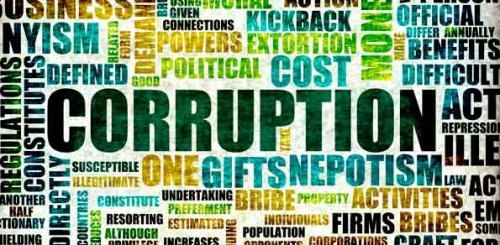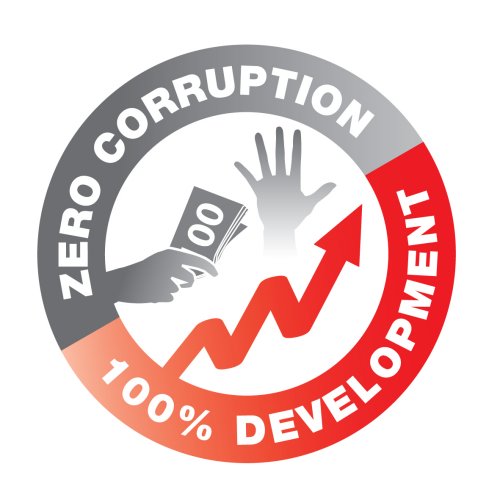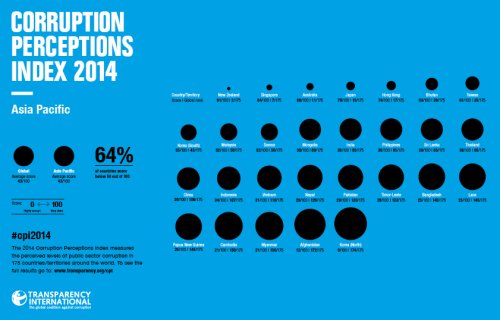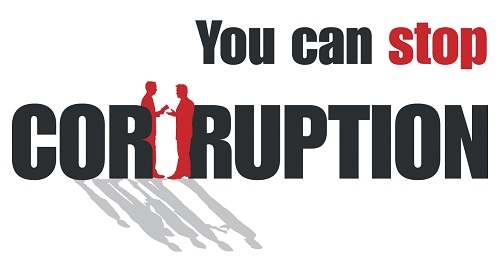Corruption: A cancer That Erodes Development Potential
Some officials in certain sectors in Laos still believe that if corruption issues are allowed to come to light it will have a negative impact not only on the individuals concerned but also on the country as a whole.
However a recent report from the Anti-corruption department posits the opposite, that in fact, when issues surrounding corruption and malpractice are exposed and then addressed, this actually paints the country in a positive light.
The department and the State Inspection Authority have done the right thing by revealing instances of fraud and corruption in various fields of government administration and bringing it to the public’s attention.
The recently disclosed report was quite frightening to read and it was evident that corruption has become widespread, especially amongst government employees involved in certain sectors prone to illegalities.
One example was the timbre and logging businesses in Savannakhet province, which was rife with graft, while other officials were found to have embezzled 5.1 billion kip of state assets in another instance. There are, of course, more cases like these.
We used to be doubtful that anything would ever be done about such instances of malfeasance until the authorities moved recently to crack down on corruption and address revenue leaks, with a number of officials put behind bars for their crimes.
Although some of the wrongdoers were prosecuted, one would hope that such action will be taken to address corruption wherever it is required and the prosecutions were not just a case of killing the chicken to scare the monkey.
One notable example was the prosecution of a graft ring in Huaphan province which was misappropriating state salaries, for which 52 people including many government employees were prosecuted.
Shonky road construction, illegal logging and the misuse of the state budget are amongst the most serious issues on the corruption list, because they have a direct impact on infrastructure, natural resources and development.
It is obvious that when road construction contracts are not granted in a transparent manner, the contracted companies will take advantage of the situation to cut corners and build substandard roads.
This kind of thing impacts on development and the economy, causes road accidents and is injurious to the state budget because the roads in question have to keep being repaired over and over again.
 Illegal logging is another burning issue that is depleting some of our most valuable natural resources. The nation’s forests are invaluable to ecosystems, are a home to wildlife, provide a cooler climate and maintain the country’s water catchments and hydropower potential.
Illegal logging is another burning issue that is depleting some of our most valuable natural resources. The nation’s forests are invaluable to ecosystems, are a home to wildlife, provide a cooler climate and maintain the country’s water catchments and hydropower potential.
With this cancer of corruption spreading in our society, it requires all of us to take collective action to rid the nation of graft and malpractice and make our country more transparent, working to become a state governed by the rule of law.
Realistically, corruption does exist in every county around the globe to greater or lesser extents. This is a fact but it is not an excuse not to fight against it.
Overall, corruption clearly undermines good governance, destroys competency and proper administration and has a deleterious effect on society.
Some countries in Asia such as Hong Kong and Singapore used to face these kinds of issues but they stand as examples to everyone else that in fact corruption can be defeated.
These countries acknowledged the fact that corruption weakened their good governance and hampered development and investment; that’s why their governments took serious action to stamp it out.
As a former British colony, Hong Kong is a good example to look at because historically, at one stage, corruption was widespread amongst its society, forcing the administrators to set up an anti-corruption commission to crack down the problem.
The commission imposed strict laws and took serious action to punish those who were corrupted until the country was able to achieve its goal of being largely free from corruption.
The comparative elimination of corruption brought huge benefits to this small island by drawing a number of investors who trusted in the transparency and administration systems in Hong Kong.
Through their efficient tax collection systems and proper public administration, these formerly poor places (Hong Kong and Singapore) have become hubs for international finance and trade due to their reputations as transparent, efficient and safe places to trade.
Laos, on the other hand, is now facing many problems with corruption and the government is trying to cope with it. We are not talking about being corruption free but we expect that corruption issues will be taken more seriously in order to make investors’ believe their money is safe when they come to invest in Laos.
If we lack accountability and transparency, we will only attract the kind of irresponsible investors that take advantage of corrupt officials to exploit our natural resources and undertake questionable developments.
If we are to go some way to stamping out corruption, it will require everyone to participate, including the media, which should play a central role in exposing corruption issues.
First, we have to admit that, at the moment, our media is not strong enough to expose corruption and that many people still turn a blind eye to graft as they fear the consequences if they don’t.
Corruption is like a cancer; it spreads from within. The exterior may look shiny and clean but cut away the skin and it is rotten at the core.
If nothing is done to stop corruption our society will be paralysed and we will scare away the good quality investors who expect transparency and accountability and whose business operations will bring real wealth to the people and the country, not only those who grease the wheels.
According to data from Transparency International, Laos is ranked 144th out of 177 countries for corruption and is in the bottom 14 per cent of countries around the world. Admittedly, some corruption is inevitable in countries that are poor but it is only by fighting it can they really escape from poverty.
Source: Vientiane Times






